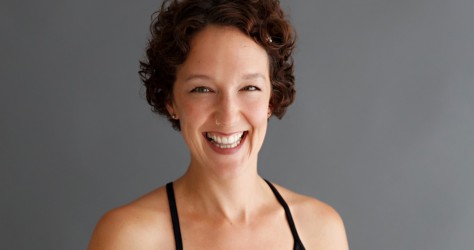Integrated Movement Therapy
IMT is a holistic modality developed at the Samarya Center of Seattle. This modality believes yoga can serve absolutely all people, regardless of perceived barriers.
To most people in the West today, yoga is a form of exercise; a series of physical poses and movements. Traditionally, however, yoga is a whole-person healing modality, touching on the mental, emotional, energetic, and spiritual or philosophical as well as the physical.
IMT at Evolutions
Our resident expert is Jessie Rhines, a licensed mental health counselor and a yoga teacher, and, in a marriage of the two, is also certified in the Integrated Movement Therapy (IMT) method.

Jessie chooses to practice and teach “Big Yoga,” the movements and poses along with the rich yoga philosophy which shares ideas about how to be more compassionate, how to suffer less, how to find more peace: in short, how to live a better life. Jessie offers individual Integrated Movement Therapy sessions as well as group yoga classes for special conditions, such as Yoga for The Blues and Yoga for Stress.
Contact Jessie Rhines for more information or to schedule an appointment jessierhines@gmail.com
What is IMT?
IMT sessions combine talk therapy with yoga philosophy, movements, and poses. Yoga helps us to develop better body awareness, so that we understand the connections among the physical-emotional-mental-spiritual.
Increased body awareness also allows us to become more aware of thoughts and emotions at earlier, more subtle stages, allowing us to intervene sooner.
And yoga’s movements and poses, philosophies and breathing techniques offer endless tools for dealing with our suffering. Lastly, integrating movement into therapy provides experiential and multi-sensory learning (versus keeping us only in our heads)–we learn better and can shift more deeply this way.
Typical IMT sessions involve some talk and some movement, although the ratio is determined together, in partnership, and addresses your specific needs on a given day. Our movement can range from gentle breathing exercises to a full vigorous asana practice.
Many techniques can be classified as Yoga Therapy, and many people find “regular” yoga classes to be mentally or emotionally therapeutic in some way. A few things that set IMT apart from other Yoga Therapy practices and from yoga classes are:
- Its foundations in clinical experience and neurobiology
- Its focus on our wholeness rather than weakness and diagnoses; its view that we are all divine individuals, not the labels of our disease
- Its passionate dedication to partnership rather than hierarchy
- Its comprehensiveness, touching on many aspects of the self: emotional, cognitive, spiritual/philosophical, physical and communal.
IMT is a great primary or adjunct therapy and can work in partnership with physical therapists, occupational therapists, speech and language pathologists, doctors, and more traditional psychotherapists.
What IMT Is Not
Physical Therapy: Jessie is not a physical therapist, using yoga as one tool. She focuses on the emotional, mental, energetic, and spiritual/philosophical in addition to the physical.
One-on-one Yoga class: Some students seek a personal teacher to help them attain specific yoga postures, or to develop a home practice. While either of these goals could certainly be a part of your work together, Jessie also gives attention to the mental, emotional and spiritual aspects of each client.
Traditional talk therapy: While Jessie has been a counselor for many years, with roots in Cognitive Behavioral, Psychodynamic, and Dialectical Behavioral therapies, she have found that talk therapy is much more effective when it is combined with yoga practice, as yoga helps you increase your body awareness and better understand the connections between body and mind. It also gives you experiential learning, versus staying in your head.
Who is a good candidate for IMT?
Yoga is an ancient study of humanity; if you’re a human, IMT can benefit you.
While we often feel different and separate from other individuals and groups, the fact is that we all, in our own ways, experience suffering. IMT focuses on how each of us can suffer less.
You needn’t have any yoga or movement experience, any amount of flexibility, or any particular amount of strength. You do need to have some openness to the idea that body and mind work together, and some interest in studying yourself.
While IMT is effective with any physical, mental, emotional or spiritual challenge, Jessie often works with individuals and groups around the following issues:
- Depression
- PTSD
- Anxiety
- Arthritis
- Grief and Loss
- Stroke
- Body Image Issues & Disordered Eating
- Birth and Post-Partum Transition
- End of Life
- Sleep Disorders
- ADD/ADHD
“Turn your face to the sun, and the shadows fall behind you.”
- Maori proverb